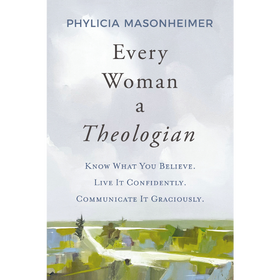 By Phylicia Masonheimer
By Phylicia Masonheimer
How many Old Testament prophecies did Jesus fulfill, and what does this mean for us today? Phylicia Masonheimer explores key Old Testament prophecies fulfilled by Jesus, and what these verses reveal about Jesus’ identity as the Messiah.
God’s goal has always been to restore perfect love and peace between Himself and His creation. But even God’s beautiful temple, a place for Jews and Gentiles alike to come and worship, could not be preserved from humanity’s sin. The temple was destroyed, the ark of the covenant stolen, and with it, all hope of God dwelling with humanity.
Until Jesus.
Israel went into exile and did not repent. Yet during this time of darkness, God was at work. The ancient words of previous years were throbbing with promise: The Messiah is coming.
The Messiah did come, just not in the way He was expected. Instead of a reigning king or well-trained soldier, He came as the baby of a poor teenage girl and the adopted son of a carpenter. And when He came into the public eye, He did not rally Israel against their Roman overlords but invited them into a greater kingdom.
The authors of the Gospels linked their accounts to the Old Testament prophets as evidence of Jesus’ unique character. Here are a few of the prophecies fulfilled by Jesus’ birth:
- Numbers 24:17—He would be from the line of Jacob
- Isaiah 11:1—He would be born from the family of Jesse
- Jeremiah 23:5–6—He would be David’s kingly heir
- Micah 5:2—He would be born in Bethlehem
- Isaiah 7:14—He would be immaculately conceived (born of a virgin)
- Psalm 72:10—He would be worshiped and given gifts at His birth
- Jeremiah 31:15—A king would murder children in an attempt to kill Jesus[1]
Jesus was not the Messiah He was expected to be; He was the Savior the world didn’t know they needed.
What Do Old Testament Prophecies Reveal about Jesus’ Identity?
Jesus, then, was both expected and unexpected. His Jewish family was expectant for the Messiah, but He did not take the form many thought He would. Even today there is some debate about whether prophecies about Jesus were really meant to be about Jesus at all. One answer to this question lies in the dual fulfillment, or the “double meaning,” of these prophecies.
Think of a word with two meanings. English provides plenty of these; they’re called homonyms. The word arm can mean “the thing attached to your body, holding this book” or “the act of using weapons to defend yourself.” Or how about the word date? A date can be a fruit, a time on the calendar, or a cute guy who takes you out for coffee. In each instance, the word has meaning but the context determines its meaning.
A dual fulfillment prophecy is kind of like a homonym: in its original historical context, the prophecy has fulfillment and application. But it also has fulfillment in a future, Messianic context. Prophecies about Jesus typically had both types of fulfillment.
Dr. David Jeremiah describes the prophecies and psalms about Jesus as “double reference prophecy.”[2] This type of prophecy has three distinct characteristics:
- The first fulfillment is found in a person or event close to when the prophet spoke for God.
- This first fulfillment is partial; it has more to come.
- The ultimate fulfillment is found in Christ.[3]
So when we look at the promises about Jesus, we’re often looking at statements or prophecies that applied both to the time they were written and to Jesus’ birth, life, death, and resurrection. Here are a few:
- The Messiah would be called a Nazarene (Isaiah 11:1; Matthew 2:23).
- He would speak in parables (Psalm 78:2–4; Matthew 13:10–15).
- He would be called a King (Zechariah 9:9; Matthew 27:37).
- He would be betrayed for thirty pieces of silver, and a potter’s field would be bought with the money (Zechariah 11:12–13; Luke 22:47–48; Matthew 27:9–10).
- He would be silent when accused (Isaiah 53:7; Mark 15:4–5).
- He would be killed with criminals (Isaiah 53:12; Matthew 27:38).
- He would be a sacrifice for sin (Isaiah 53, Romans 5:6–8).
This is just the tip of the iceberg. Scholars have concluded that Jesus fulfilled anywhere from 300 to 570 Old Testament prophecies.[4] Many of these are woven into the fabric of psalms of worship. Others are part of more immediate prophecies regarding coming judgment on evil nations. Both Jesus and His disciples attributed these prophecies to Christ.
In other words, Jesus is who He says He is—the Son of God.
Adapted from Every Woman a Theologian: Know What You Believe. Live It Confidently. Communicate It Graciously. by Phylicia Masonheimer. Click here to learn more about this book, and click here to learn more about the workbook.
Know what you believe and live it boldly! Phylicia Masonheimer believes that every woman should be a theologian and a student of the heart of God. Learn the basics of theology and why it’s so important, continuing your biblical education one step at a time. Discover how deeper scriptural knowledge can help you navigate the world, answer your toughest questions, and engage culture in loving ways.
All of us have guiding principles at work behind our choices, even if we don’t realize it. We hold beliefs about the world, ourselves, and God—beliefs perhaps we may have adopted unknowingly based on experience or culture’s messages.
But God has revealed himself through Scripture so it can transform how we view and navigate the world—how we think, act, love, work, marry, and parent. When we do that, we become theologians. No, we’re not wearing tweed suits or giving lectures; we’re driving to our corporate job every morning, or juggling babies on our own, or connecting with our communities. We’re women want to know who God is and how He answers our toughest questions.
Through engaging stories and compelling truths, Every Woman a Theologian will help you:
- Identify your existing beliefs about God, salvation, and the Christian life
- Learn how to lovingly communicate Christian truths to those who disagree
- Understand theological concepts without feeling overwhelmed
- Grow closer to the heart of God Believing and following Jesus means daily forward motion into the heart of God.
Step in that direction with Phylicia Masonheimer as your guide, and you will grow as a woman able to discern truth, who knows what she believes, and who lives her faith boldly in a post-Christian world.
Phylicia Masonheimer is a blogger, author, speaker and podcast host teaching Christians how to know what they believe and live it boldly. Her heart is to teach women the history and depth of the Christian faith; the “why” behind the Bible. Her social media and blog cover topics ranging from sexuality to motherhood to Bible study and faith in seasons of grief and loss.
Phylicia graduated from Liberty University with a B.S. in Religion. While there, she met her husband, Josh, and together they have two daughters. After living in Virginia and Pennsylvania, they returned to Phylicia’s hometown in northern Michigan, where they live on a small farm in the country.
[1] Cory Mansfield, “The Ultimate Guide to Old Testament Prophecies Jesus Christ Fulfilled,” https://www.preaching.com/articles/the-ultimate-guide-to-old-testament-prophecies-jesus-christ-fulfilled/.
[2] David Jeremiah, “The Principle of Double Fulfillment in Interpreting Prophecy,” accessed June 23, 2022, https://biblicalstudies.org.uk/pdf/grace-journal/13-2_13.pdf
[3] Jeremiah, “The Principle of Double Fulfillment.”
[4] “How many prophecies did Jesus fulfill?” Got Questions, accessed June 23, 2022, https://www.gotquestions.org/prophecies-of-Jesus.html.
The post What Old Testament Prophecies Reveal About Jesus appeared first on Bible Gateway Blog.










